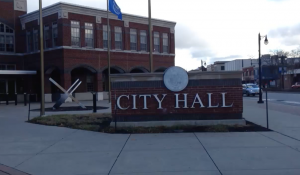Story by: Lisa Wardle
April 27, 2009 – With Olympics buzz going around Hyde Park, an old proposal to improve public transportation involving a new South Side CTA route that would run on existing Metra tracks has resurfaced. And it looks more likely to happen than ever before, according to backers of the plan and Ald. Toni Preckwinkle (4th).
However, supporters of the proposed Gold Line were upset when funding for the proposal was not added to the March 26 deal made between the Chicago 2016 Olympic bid committee and the Coalition for an Equitable Olympics (CEO), a group working to promote long-term benefits for South Side neighborhoods.
“It’s difficult to get an improvement funded if there’s no agency promoting it,” said James Withrow, a University of Chicago professor and one of the promoters of the Gold Line plan. “[Bid committee] 2016 could have promoted this but they’re pretty much useless dealing with the communities around the sites.”
Though omission from the bid committee deal has proven to be a setback, Withrow said he feels the Gold Line plan will succeed.
The Regional Transportation Authority (RTA), the agency crucial to carrying out the plan, did not respond to repeated interview requests for this story.
For more than six years this idea has been on some residents’ minds. In 2003, Mike Payne, a typewriter repairman, hatched a plan for a new el route, which he called the Gray Line. He proposed the route run on Metra tracks from downtown Chicago through Hyde Park and other South Side neighborhoods, and end in the Blue Island neighborhood, roughly 130th Street and Damen Avenue. The proposed Gold Line is very similar, though the Gray Line would have been longer by about 40 blocks.
“I independently came up with a similar idea,” said Withrow. “But I took [Payne’s] proposal and pared away what I thought wouldn’t be as useful.”
Withrow said the RTA would need to back the plan to establish the Gold Line. The RTA oversees the Chicago Transit Authority (CTA), which serves the city, as well as Metra and Pace, which both serve suburban areas.
“Metra is not sufficiently motivated to do this on its own,” said Withrow. “It’s a suburban agency. They’re not motivated to increase service here. On the other hand, CTA can’t just step in and say they want Metra’s tracks.”
The proposed Gold Line would benefit tourists during the Olympics if Chicago gets them, and would be an asset to the neighborhood long after the Games end, says the group Southsiders Organized for Unity and Liberation (SOUL). The South Side is currently not easily accessible from other areas in the city, which makes residents of southern Chicago neighborhoods less likely to leave their immediate vicinity.
“One student of mine wants to be a chef,” said Sydney Ahearn, a teacher at J. N. Thorpe Elementary. “I would love to take her on a trip to the culinary institute downtown, but I can’t. As it stands now, the South Side is not easily accessible, at least not safely.”
Shannon Kirwin, a University of Chicago graduate in support of the proposal, said that students at the university don’t leave Hyde Park often because transportation is such a hassle.
“To get anywhere, U of C students have two options: the number six or number 28 buses, which stop running around midnight, and the combination of the number 55 bus and the Red Line, which takes forever,” Kirwin said. “It goes without saying that improved transportation to the South Side would make a big difference to the quality of student life.”
Anyone can propose ideas to improve city public transportation, but proposals with greater support are more likely to gain the necessary momentum to reach the transit companies.
SOUL member Jake Werner said the first step in getting the Gold Line is to secure funding for a feasibility study. He and a group of supporters plan to take a bus from Hyde Park to Springfield on April 22 in order to lobby state legislators for this funding.
In addition to neighborhood residents, supporters of the proposal include State Sen. Kwame Raoul; State Reps. Barbara Flynn Currie and Will Burns; and aldermen Preckwinkle (4th), Leslie Hairston (5th), Sandi Jackson (7th), Michelle Harris (8th) and Willie Cochran (20th).
“It’s a group of people working together instead of just a few,” said Preckwinkle. “SOUL, CEO, the University of Chicago and residents are all helping.”






Be First to Comment